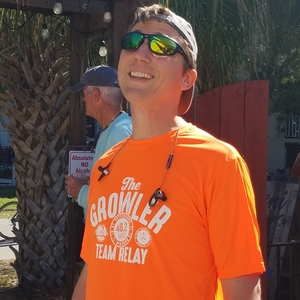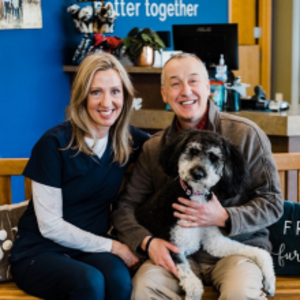- Plant Parent 🪴
David Mininni
"To find easily achievable plastic-use reduction skills that I can share with others. "
POINTS TOTAL
- 0 TODAY
- 0 THIS WEEK
- 1,354 TOTAL
participant impact
-
UP TO12low-plastic businessessupported
-
UP TO1.0advocacy actioncompleted
-
UP TO7.0individualsrecognized for sustainability
-
UP TO13conversationswith people
-
UP TO33ideasshared
David's actions
Level Up: Influence Friends and Family
Pack a low or no-plastic lunch and talk about it with others
Food packaging is a major source of plastic. I will pack a lunch with little or no plastic and use it as a conversation starter with coworkers, classmates, or friends to share tips and inspire change.
Level Up: Influence Friends and Family
Swap ideas for reducing plastic with someone close to you
Sharing ideas helps us stay motivated and discover new ways to take action. I will share ideas with friends or family members about ways we each reduce plastic in our lives.
First Steps: Start with You
Support businesses with plastic-free or refillable options
Where we spend our money shapes the market. I will support a business that offers plastic-free, low-waste, or refillable products or services.
Level Up: Influence Friends and Family
Catch microplastics in laundry before they spread
Washing synthetic fabrics releases tiny plastic fibers that end up in our waterways. I will install a washing machine filter or use a microplastic-catching device to capture microplastics before they leave my home — and I will share what I did and why with others to inspire more sustainable laundry habits.
First Steps: Start with You
Choose secondhand or a recycled product for my next purchase
Buying recycled or secondhand products helps close the loop and reduces demand for new plastic. I will look for and purchase a product made from recycled materials or choose a secondhand option the next time I shop to keep valuable resources in use longer.
Lead the Way: Shape Your Community
Put up a sign or note about reducing plastic at a shared space (kitchen, dorm, office)
Visual cues can inspire action in shared spaces. I will place a friendly sign or reminder in a common area — like a kitchen, bathroom, or office — to encourage less plastic use and spark conversation. I’ll include a clear, specific call to action so people know exactly how to take the next step.
Level Up: Influence Friends and Family
Start a household challenge to reduce plastic
Change starts at home. I will create a fun challenge with my household — like using no single-use plastic for a day or swapping out a product — to make plastic reduction a shared goal.
Level Up: Influence Friends and Family
Invite others to join the Ecochallenge
Our actions are more powerful when we take them together. I will invite someone to join the Ecochallenge with me so we can learn and take action together.
Lead the Way: Shape Your Community
Leave a positive review for a business offering low-waste options
Businesses take notice when we show support for their sustainable choices—and so do our friends and neighbors. I will write a positive review for and personally recommend a business that offers low-plastic or refillable options to help others discover it and demonstrate that sustainability is valued by customers.
First Steps: Start with You
Track my plastic use for a day or a week
Awareness is the first step toward change. I’ll track how much plastic I use in a day (or week), paying attention to packaging, food containers, and single-use items. I’ll reflect on what surprised me most and what I could do differently.
Level Up: Influence Friends and Family
Celebrate someone else’s plastic-free effort
Positive reinforcement goes a long way in fostering sustainable change. I will celebrate someone’s effort to reduce plastic — whether big or small — by acknowledging their success in the feed or on social media and encouraging them to keep going.
Participant Feed
-
 David Mininni 7/31/2025 6:04 AM
David Mininni 7/31/2025 6:04 AM- Plant Parent 🪴
Congrats to everyone still around. :) -
 David Mininni 7/29/2025 6:26 AM
David Mininni 7/29/2025 6:26 AM- Plant Parent 🪴
At my work we were able to stop providing single use plastic water bottles and install a water filter for use with tap water faucet.-
 David Mininni 7/29/2025 6:36 AM
David Mininni 7/29/2025 6:36 AM- Plant Parent 🪴
-
 David Mininni 7/28/2025 4:58 AM
David Mininni 7/28/2025 4:58 AM- Plant Parent 🪴
Just reminding myself to find balance. All new habits are at risk of being abandoned if you make things harder and harder on yourself. Small sustainable changes. 😊-
 Mary Hanks 7/28/2025 12:25 PM
Mary Hanks 7/28/2025 12:25 PM- TEAM CAPTAIN
David, I'm replying to your comment on one of my posts, since I'm not sure you can easily see it--I'm so glad you like the Bowseat art too! Much of it had me in tears, and I'm not usually much of a crier. I'm amazed at nuanced these young people's creative responses are. -
 Ashley Chambers 7/28/2025 12:02 PM
Ashley Chambers 7/28/2025 12:02 PM -
 Alexia Woerner 7/28/2025 5:33 AM
Alexia Woerner 7/28/2025 5:33 AM- Adventurer 🏔
-
 David Mininni 7/27/2025 5:35 AM
David Mininni 7/27/2025 5:35 AM- Plant Parent 🪴
Even 25 years ago they were telling us reduce, reuse and recycle. But even then everyone always overlooked the first two r's. I think culturally Americans are very consumption driven.-
 Shelby Brookbank 7/27/2025 10:03 AM
Shelby Brookbank 7/27/2025 10:03 AM- Water Protector 🌊
-
 David Mininni 7/27/2025 5:35 AM
David Mininni 7/27/2025 5:35 AM- Plant Parent 🪴
Even 25 years ago they were telling us reduce, reuse and recycle. But even then everyone always overlooked the first two r's. I think culturally Americans are very consumption driven. -
REFLECTION QUESTION
 Level Up: Influence Friends and FamilyWhat conversations came up when you invited someone? Did anything surprise you about their response or perspective?
Level Up: Influence Friends and FamilyWhat conversations came up when you invited someone? Did anything surprise you about their response or perspective?
 David Mininni 7/27/2025 5:22 AMNot everyone is interested in any way about recycling or doing "green" things.
David Mininni 7/27/2025 5:22 AMNot everyone is interested in any way about recycling or doing "green" things. -
 David Mininni 7/25/2025 5:32 AM
David Mininni 7/25/2025 5:32 AM- Plant Parent 🪴
Somehow my news feed shared with me that Orlando Bloom recently underwent apheresis (blood cleansing) to remove microplastics from his blood. Meanwhile dialysis patients receive a small amount of microplastics from the dialysis machine 0.o I just wish google news could translate my google searches into legitimately interesting suggestions rather than simply mapping it to the most click bait things they can find. C'est la vie. -
REFLECTION QUESTION
 Level Up: Influence Friends and FamilyWhat did you share about your lunch, and what kinds of responses did you get? Did the conversation open any doors? Post a pic of your meal in the feed!
Level Up: Influence Friends and FamilyWhat did you share about your lunch, and what kinds of responses did you get? Did the conversation open any doors? Post a pic of your meal in the feed!
 David Mininni 7/25/2025 5:27 AM
David Mininni 7/25/2025 5:27 AM- Plant Parent 🪴
That it was just part of my attempt to be more sustainable and that it was important that I share ;) -
 David Mininni 7/24/2025 5:08 AM
David Mininni 7/24/2025 5:08 AM- Plant Parent 🪴
I've been tracking my plastic usage all month. If only I could be this consistent going to the gym. :(-
 Ashley Chambers 7/25/2025 5:46 PM
Ashley Chambers 7/25/2025 5:46 PM -
 Debbi Stone 7/25/2025 4:17 AM
Debbi Stone 7/25/2025 4:17 AM- Pet Parent 🐾
-
 Stacey Stamps 7/24/2025 8:00 AM
Stacey Stamps 7/24/2025 8:00 AM- Pet Parent 🐾
-
 David Mininni 7/22/2025 8:50 AM
David Mininni 7/22/2025 8:50 AM- Plant Parent 🪴
Just wanted to mention an interesting documentary on Netflix: Buy Now! The Shopping Conspiracy